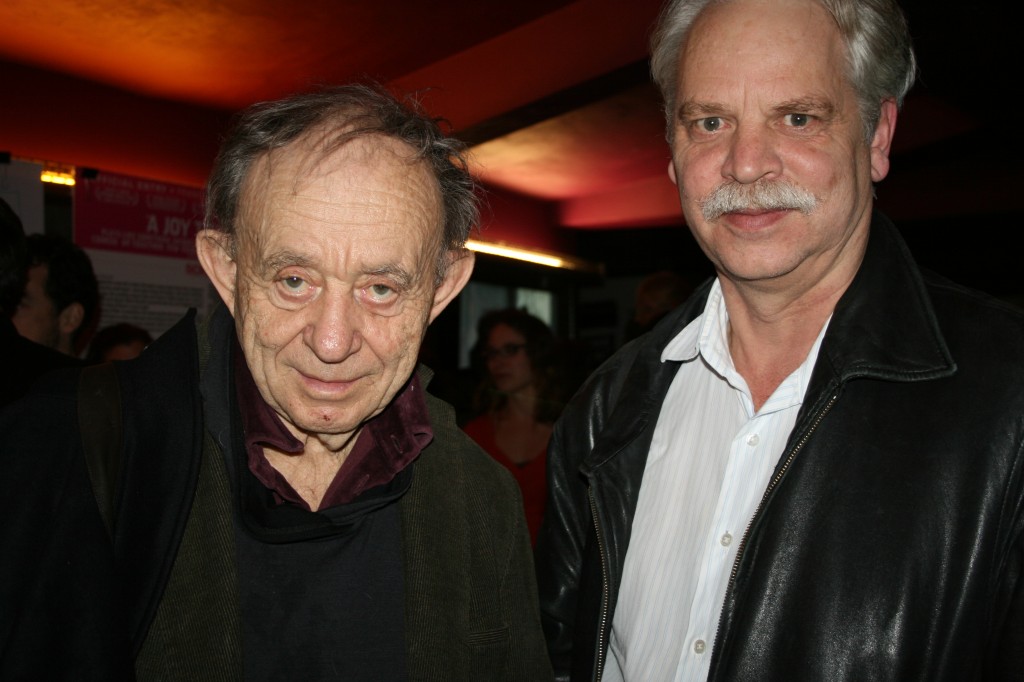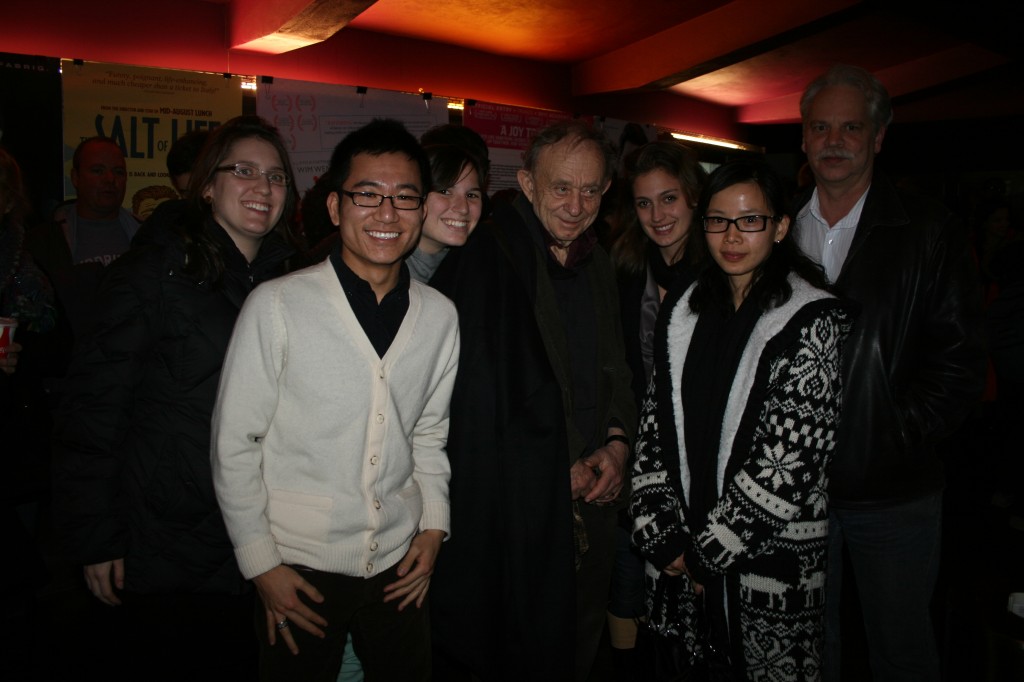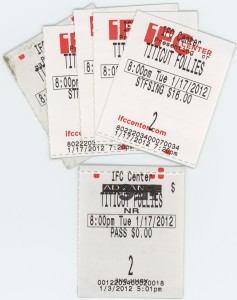
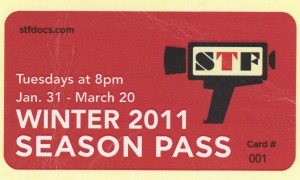 We uncover gaps in our know- ledge -–and those of our students ––all the time.
We uncover gaps in our know- ledge -–and those of our students ––all the time.
This past fall I mentioned the name and work of Frederick Wiseman to students in my Documentary Film Workshop course, and they responded with an awkward silence. Remedial viewing was obviously called for! Then Wiseman was scheduled to show Titicut Follies (1967) at Stranger Than Fiction in NYC on Tuesday, January 17th. So we went! 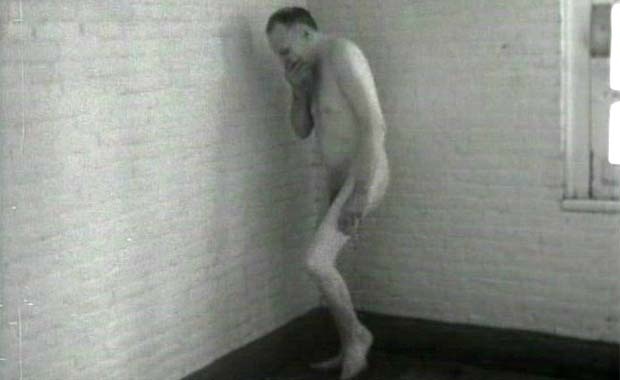
Titicut Follies (1967)
I’ve heard Wiseman speak quite a few times and seen Titicut Follies numerous times over the years. In fact, Fred (the presumption on being on a first name basis does not feel entirely earned) received the Yale Film Studies Program Award in 2001–and has been to Yale on a number of different occasions. (He graduated from Yale Law School in 1954.)
Besides the adventure of caravaning down to New York City with a group of students, there were a few things that made this experience a little different.
First. Because the film could only be shown under restricted circumstances for many years, I had always seen the film in a classroom or at least academic context ( like many other students in Film Studies). This meant having a range of nontheatrical viewing experiences as a norm. In contrast, the IFC showed a brand new print, and its projection was first rate. In short, it was a theatrical experience–cinema and, of course, a cinefilic experience. So the narrative and performative aspects of the film, as well as the absurdist and surreal sensibility, came out quite strongly. I suddenly felt that the early battle around censorship of Titicut Follies and the instrumental assumption that the film’s purpose was that of social reform have produced a particular set of somewhat limited analyses of the film. Although Wiseman’s discussions of Titicut Follies generally reinforces this view, his picture has quite a bit in common with Shirley Clarke’s The Connection (1961). And Wiseman had, of course, produced Clarke’s feature The Cool World (1964). Some of his scenes shot in the prison yard reminded me of the opening scenes of The Cabinet of Dr. Caligari!
Second, my discussions with Errol Morris about Wiseman’s work have encouraged me to look at his films from a slightly different vantage point. Errol’s favorite Wiseman film is Sinai Field Mission (1978), which came out the same year as his own Gates of Heaven. He sees that little known Wiseman film as an absurdist comedy, which strikes me as an astute reading. Perhaps some of Wiseman’s other films can and even should be seen from this perspective? Despite its depiction of desperation, degradation and despair, an element of black comedy does run through Titicut Follies–as even the title suggests.
Normally I run into a number of documentary filmmakers at these STF events, but I suspect that many of them were waiting to go to the opening of Crazy Horse, which was opening at Film Forum the following evening. The exception was Susan Meiselas, whom I got to know a little through Julia Preston and Richard Rogers. By total chance I sat down right in front of her. It turns out that, among other things, she was an assistant editor on Wiseman’s Basic Training. When I was trying to get a group photo of my students with Wiseman and looking for someone to snap the picture–Susan was standing right there.
Li Jing, a post-doc from China who works at CCTV as a producer/director, videotaped the Wiseman Q & A (led by former Yale Film Studies major Hugo Perez). She used her cell phone and we are working on boosting the sound. So here it is:

